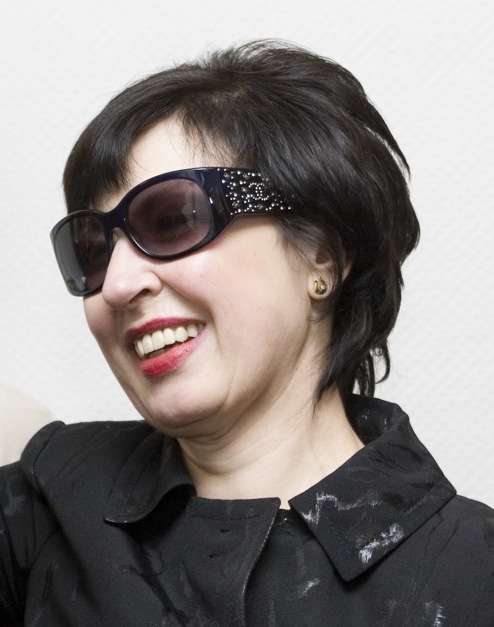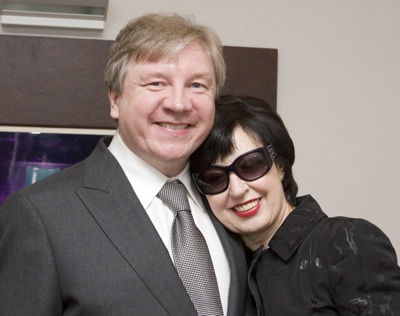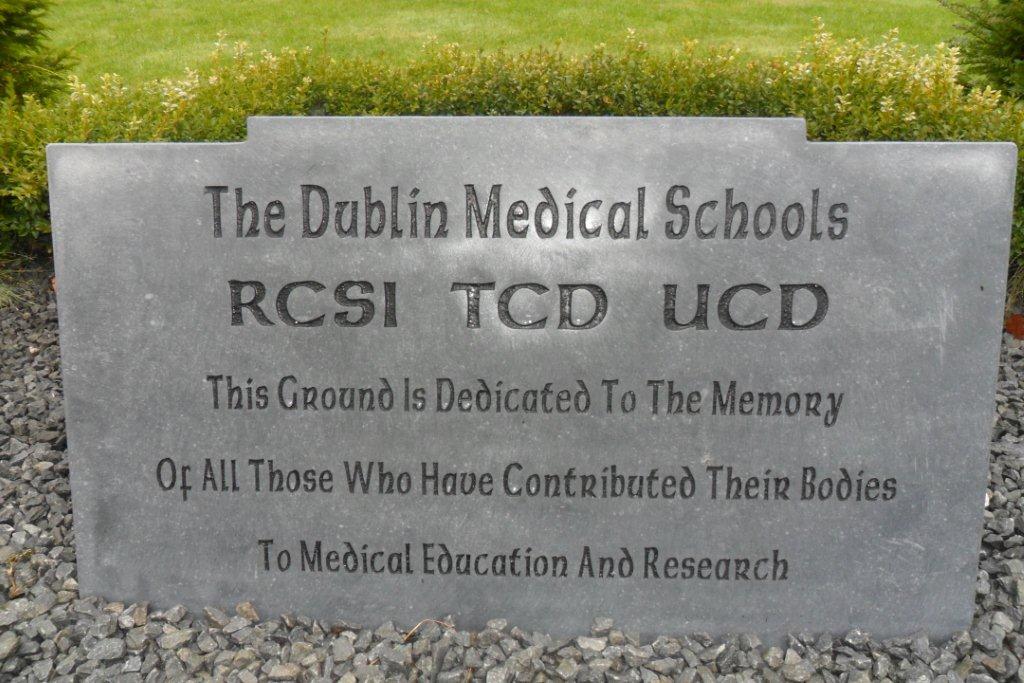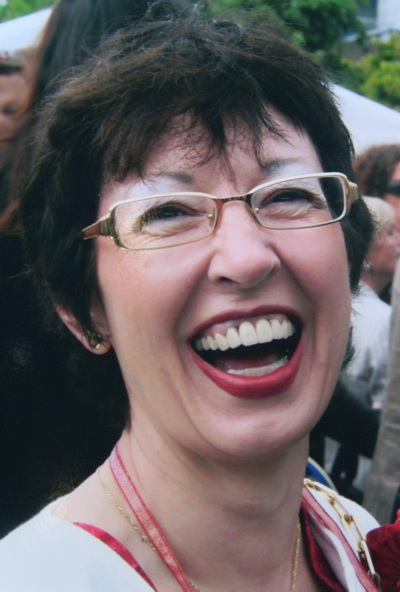My smart, sexy, funny and courageous wife Anne Holliday died of lung cancer four years ago today. We loved each other very much for all of the twenty five years that we lived together with our tribe of rescue cats.
We loved every moment together, from waking up with our manoeuvrability restricted by cats snuggled against us, to laughing and lovemaking on holidays in Paris and the Caribbean, to watching countless DVD box sets when Anne was tired from chemotherapy.
We also worked together to help build a peaceful, liberal and caring Ireland, challenging the influence of the Catholic Church on Irish law in areas like contraception, divorce and abortion, and opposing terrorism from all sides in Northern Ireland. If she was still alive, Anne would have been immersed in the marriage equality referendum campaign.
For some reason, this year I am more often thinking something that my late father Michael often said in the years after my mother Mary died. He said it most eloquently at our wedding, which we celebrated after Anne was diagnosed with terminal cancer.
He said: “The one regret that I have is that another marvellous lady, Michael’s mother, isn’t here to give what I know would have been her nod of approval for this union between Anne’s family and the Nugent family.”
It is only really now, four years after Anne has died, that I fully appreciate the strength of emotion that my father was conveying with that phrase. Often now, when I am doing something that I know Anne would have enjoyed, I wish that she had lived long enough to have experienced it.
And it is not just milestone events, like the return of I Keano to the Olympia, where I am meeting people who I last met when Anne was alive, or the house renovations we had planned before Anne’s diagnosis, after which she put them on her ‘list of things you can do after I am dead!’
It is also many simple day-to-day moments, like seeing two of our cats licking each other’s heads clean, or the click of the heating coming on the morning and knowing that we still have an hour left in bed before we have to get up.
Now, when lying in bed with the cats, I remember possibly the most profound thing Anne said while she was dying. We were lovingly cuddled in bed with three of our cats, and Anne said to me, “You know, I’m really going to miss this.”
Then she paused, and corrected herself. “Actually, I’m not going to miss this. You are going to miss this.”
I also wish that Anne was still alive whenever her sister Carrie or other family members visit from Scotland, and whenever I meet Maggie, Clair, the two Marys or any of Anne’s close friends from work or politics or our neighbourhood.
My most irrational instance of this emotion came last September, when Anne was buried three years after donating her body to Trinity College Medical School.
In a positive move towards an inclusive Ireland, the Dublin Medical Schools had respected Anne’s wish for a secular burial and, at my request, they had replaced the decades-old religious memorial stone at their burial plot in Glasnevin Cemetery with a new, neutral inclusive one.
This means that, from now on, when anybody donates their body for medical education and research in Dublin, their loved ones can now remember them at their grave in accordance with their own personal beliefs, whether those beliefs are religious or atheistic, and nobody need feel excluded or marginalised.
As I stood over the burial plot on the day of Anne’s funeral, I looked at the new stone with its inclusive secular inscription, and thought “I wish Anne had lived to see that stone, she would have been so proud.” Then I instantly realised that she could never have seen it, because it was only there because she had died.
I sometimes wonder if I feel these emotions more strongly than a religious person might, because I don’t have any expectation of seeing Anne again in an afterlife? I doubt it. I suspect that most religious people feel the same emotions regardless of their beliefs.
But I am happy that Anne is still helping others through the only afterlife that we know actually exists, not in a comforting but untestable imagined heaven, but in the reality of our memories of how she lived and loved, and our continuation of her life’s work for a peaceful, liberal and caring Ireland.
Finally, here is the tribute that I wrote to Anne four years ago after she died.
My tribute to my late wife Anne Holliday
Thank you to everyone who has left kind comments about Anne. It helps her memory and her legacy to live on.




Profoundly beautiful.
She must have been a very special lady. My first instinct was to offer condolences, but it seems you have many happy memories of her which nothing can take away. I hope your memories will always be a source of strength and comfort to you.
There seems to be some dust in my eyes.
So touching – leaves me without words.
i agree with chill chick and i want to add that religion, in the end, doesn’t offer solace for even them doubt PLUS they bicker with their invisible friend how sHe/it/them could possibly do that AND they end up questioning the centerpiece of their “belief”, seeing each other again. you are both awesome.
Lovely article. Too bad for those people who went to their grave expecting that the religious memorial stone would remain, and never thought to ask that it would due to the religiosity of the school’s name.
Your self-satisfaction reeks of self-centeredness and self-importance.
If you didn’t like the memorial stone, then don’t donate remains to Trinity College.
Paulo: do you like being a dick, or it is just accidental?
Paulo,
Thanks for the kind words about Anne.
Regarding the memorial stone, not only are you insensitive but you are also uninformed.
There was no religious stone on that plot for the majority of the time that the plot has existed. It was only added in the 1970s when the plot was being renovated. So, if you want to use your logic, you could worry about the many atheists who donated their bodies before then, never thinking that a religious message would be placed above their remains.
But the more compassionate perspective is to recognise that there is now a memorial stone that is inclusive of everybody, whatever their religious or nonreligious beliefs. That is the spirit in which the Dublin Medical Schools have decided that they want to respect all of those who have been generous enough to donate their bodies to help others, also irrespective of the beliefs of the people who are helped by the donation.
A very beautiful tribute.
Paulo, you’re kind of making the assumption that previous people would have minded changing the stone to something more inclusive of all those who donate their bodies to medical science. I prefer to think better of people, particularly those who do something so altruistic.
Wow, talk about being ninja’d. Exactly. You took the words out of my mouth, almost literally.
It’s wonderful to be able to read such a clear evocation of one man’s love for his wife. Thanks Michael.
Paulo you are an imbecile.
That was a beautiful post about your late wife, Michael. I am sorry for your loss.
Now this is what life should be about, to have lived in a way that a mere description of your life brings joy to a total stranger’s heart, to not be about labels and compliance to ideology but to be good… just.. good
Vinn,
India
Good work on making the stone inclusive. People need to be able to bring what the need (religious, regardless of denomination, or non-religious) to a memorial/remembrance rather than have someone else’s religious needs shoved down their throats.
Beautiful post.
Can’t believe has gone so quickly. Hope you’re keeping well Mick